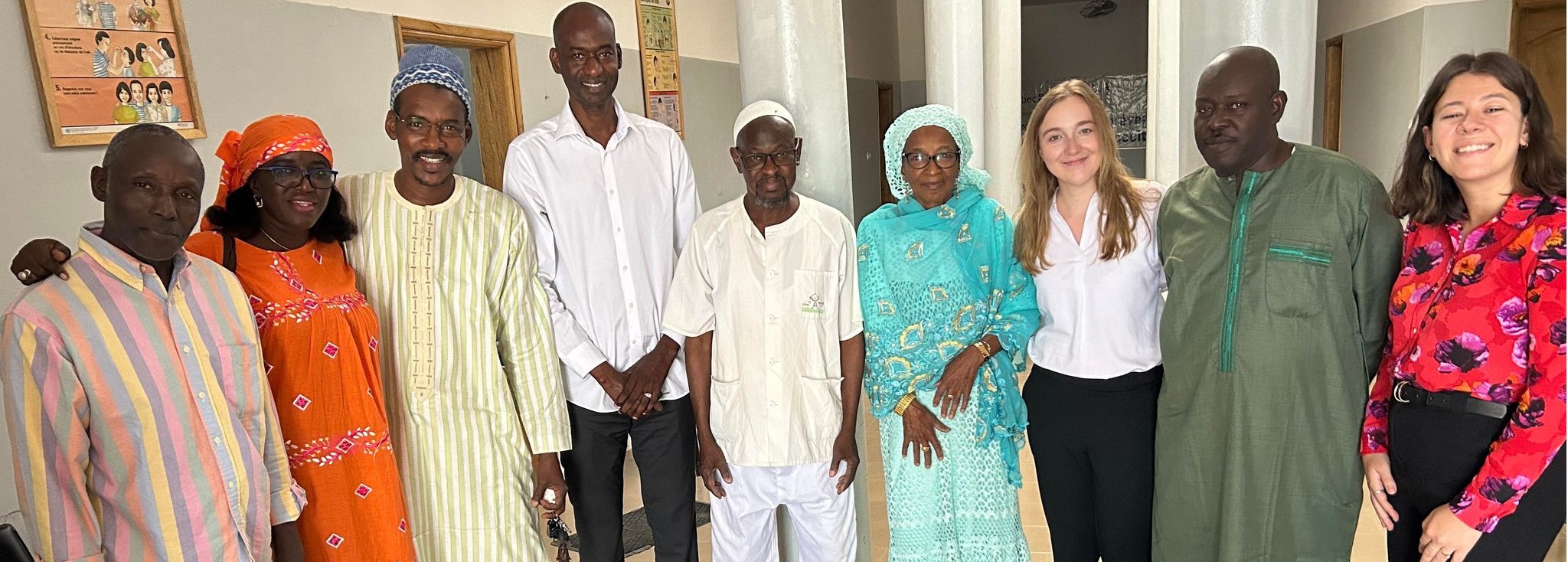Return of our Québec sans Frontières Volunteers (VQSF)
From January 2 to 23, Dr. Annabelle Messier and Dr. Véronique Small, optometrists and postgraduate residents in community optometry, traveled to Senegal to continue the training in primary eye care of the employees of the St. Louis Program for the Prevention and Fight against Blindness (PPFB), funded by the Nouveau Québec sans Frontières (NQSF) of the Quebec Ministry of International Relations.
CONTEXT
Within the framework of the Quebec Ministry of International Relations funding, Québec sans Frontières volunteers (VQSF) are involved in concrete projects that are part of an international solidarity approach in support of local initiatives. Our two VQSF optometrists had the opportunity to share an experience with our partner the Association St-Louisienne pour la Vue in Senegal. This was IRIS Mundial’s first volunteer mission since the advent of the pandemic in 2020, thus inaugurating the official resumption of international travel. Indeed, the employees of the St. Louis PPFB have benefited from support during the last 3 years, but only remotely, while the two previous missions were in February 2020 for management support and November 2019 for technical support in optometry and optics. The arrival of the two optometrists was therefore expected and welcomed! Considering that no IRIS Mundial optometrist had been there since 2019, they had to adjust and reorient their objectives a little to better adapt to the reality observed once on site… and they succeeded brilliantly!



OBJECTIVES OF THE MISSION
As mentioned in the article on the preparation of the residents’ stay, the mission at St. Louis PPFB was part of their academic curriculum as a credited internship and had several objectives. Their main mandate was to provide coaching and continuous training to the nurses in the program, in addition to offering advice and support in their daily work. They also had to carry out a clinical evaluation and a technical follow-up of the program in order to make recommendations to optimize the management and the efficiency of the centre. Finally, in order to ensure continuity and transfer of information to the future mentors, Drs. Messier and Small made proposals for the next lessons to be offered to the team, whether for distance training or for future missions.
WORK DONE ON SITE
Upon arrival, the two volunteers had the opportunity to acclimatize and stay a few days in observation mode with the team to familiarize themselves with the procedures in place in the Senegalese clinic. Dr. Messier told us upon her return: “I appreciated the fact that it was a three-week mission. We were able to take the time to fully understand the operation, to get to know the people and to gain their trust. It was easier afterwards to play our role as trainers and to make suggestions”.
They also had the chance to offer practical training to the nurses on some less frequently used instruments and to update certain tools to better adapt them to their reality. Annabelle and Véronique sometimes had to use their imagination to help optimize the employees’ work in their daily lives: a good example is the relevant reference charts that were glued in the lid of the test lens case, so that the nurses could have them constantly at hand! “I liked the fact that there were two of us on the course, because we could always count on each other, bring in other perspectives and reflect on issues together… it was very helpful and beneficial!”
MOBILE CLINICS SUPPORT
One of the objectives of the permanent programs of IRIS Mundial and its partners is to facilitate access to care. Therefore, one of the important components is to go and meet people through mobile clinics, either in remote communities or in nearby schools. During their stay, Drs. Messier and Small accompanied the team to a mobile clinic in the village of Rao, 30 k m from St. Louis, where more than 100 patients were waiting to receive primary eye care. They told us that on these days, demand is very high and enrollment exceeds the team’s capacity. They also participated in two mobile clinics in St. Louis schools where, out of approximately 100 students screened, more than 50% were referred to the centre because they were suspected of having vision problems! These three mobile clinics alone confirmed the needs and relevance of the program!
THE SENEGALESE TERANGA
Derived from Wolof, the Senegalese language, the term ‘teranga’ is much more a concept, a way of life than a simple word. It expresses the values of hospitality, solidarity and sharing that are so dear to the Senegalese. As they told us, our two volunteers had a front row seat to this ‘teranga’ throughout their stay. The staff of the centre always brought them treats and they were invited several times to share a meal, especially the thiéboudienne (a local specialty made of rice, fish and vegetables). Each time it was a great moment of exchange and experience sharing.
The two residents told us that they found their experience to be dotted with stimulating and rewarding challenges. They also added that they had met a complementary team with a lot of potential, in a promising project that has just as much potential! After three weeks on Senegalese soil, they flew back home satisfied with the mandate they accomplished and the memorable encounters they had.







